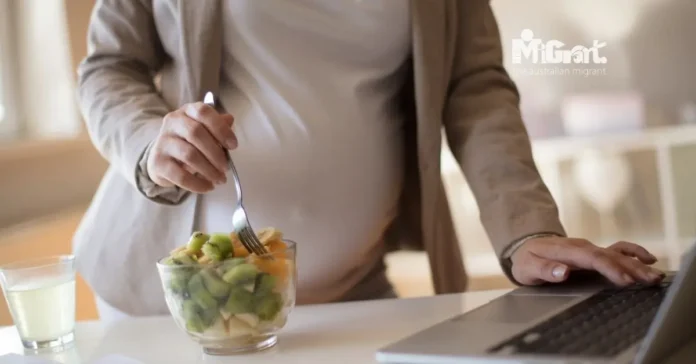For expectant parents, pregnancy is a time of hope and anticipation, but for some, it can take an unexpected turn into heartbreak. Stillbirth, the loss of a baby after 20 weeks of pregnancy, is a devastating reality that affects thousands of Australian families every year. Beyond the grief, many parents find themselves grappling with difficult questions about what went wrong, what happens next, and how to honour their baby within Australia’s cultural and legal framework.
This article sheds light on the causes of stillbirth, what families can expect in Australia if it happens, and the sensitive cultural and religious considerations involved.
Understanding Stillbirth: Causes and Risks
Stillbirth can happen for a variety of reasons, some preventable and others beyond control. The most common causes include:
- Fetal Growth Restriction (FGR): When the baby doesn’t grow as expected due to issues with the placenta.
- Placental Abruption: Premature separation of the placenta, cutting off oxygen and nutrients.
- Infections: Certain maternal infections, such as listeria or toxoplasmosis, can increase risks.
- Congenital Abnormalities: Severe developmental issues in the baby.
- Maternal Health Conditions: Pre-existing conditions like diabetes, high blood pressure, or autoimmune diseases.
- Lifestyle Factors: Smoking, alcohol use, and obesity contribute to higher risks.
- Unexplained Loss: Despite medical advances, many stillbirths occur without a clear cause.
Stillbirth often occurs unexpectedly, even during what seems like a normal pregnancy. For example, one expectant mother attended a joyous family Christmas gathering, excited to share in the festive season with loved ones. Just a week later, at a routine check-up, she and her partner received the heartbreaking news that their baby at 22 weeks gestation no longer had a heartbeat. In the days that followed, she delivered her baby at the hospital, and the couple decided to honour their child’s short life with a respectful burial.
What Happens When a Stillbirth Occurs in Australia?
When a stillbirth happens, families face not only emotional devastation but also significant decisions about delivery and aftercare. In Australia, here’s what families can expect:
- Delivery:
In most cases, the baby must be delivered. Healthcare providers guide parents through their options, which may include induced labour. The process is handled with great care and sensitivity. - Spending Time with the Baby:
Families are often allowed to spend time with their baby. Hospitals may provide services to create lasting memories, such as photographs, hand or footprints, and naming the baby. These moments can help parents process their grief and find a way to honour their child. - Legal Requirements:
In Australia, stillborn babies must be registered with Births, Deaths, and Marriages in the relevant state or territory. This registration provides a certificate of stillbirth, which acknowledges the baby’s life. - Burial or Cremation:
By law, stillborn babies must be buried or cremated. Parents can arrange this privately or seek assistance through the hospital’s bereavement services. Many families, like the couple mentioned earlier, choose to give their baby a respectful burial as a way to say goodbye and find closure.
Support for Families
Facing stillbirth is one of the most challenging experiences a parent can endure, but Australia offers a range of support services to help families through this difficult time:
- Counselling and Peer Support:
Organisations like Sands Australia and Red Nose Grief and Loss provide grief counselling, peer support, and practical resources. - Hospital Bereavement Services:
Most hospitals have specialist bereavement teams who guide parents through immediate decisions, connect them with support networks, and offer options for creating keepsakes. - Community and Online Support:
Many parents find comfort in connecting with others who’ve experienced similar losses. Online forums and local groups can provide a space to share and heal.
Cultural and Religious Considerations
Australia’s multicultural society ensures that families can honour their babies in ways that reflect their beliefs and traditions:
- Religious Rites: Hospitals often collaborate with chaplains or religious leaders to facilitate blessings, naming ceremonies, or other rituals.
- Cultural Sensitivity: Families from diverse backgrounds may have specific burial or cremation practices, and hospitals strive to respect these traditions.
For example, a couple from a Southeast Asian background worked with their hospital to arrange a burial that adhered to their cultural customs. The staff supported their request for a small ceremony, which provided the family with comfort and closure.
Preventing Stillbirths
While not all stillbirths can be prevented, ongoing initiatives in Australia aim to reduce risks and empower parents:
- Regular Prenatal Care: Early detection of complications is crucial.
- Healthy Lifestyle Choices: Avoid smoking and alcohol, and manage chronic health conditions.
- Monitoring Fetal Movements: Be attentive to your baby’s movements and report any changes.
- Sleep on Your Side: This position during late pregnancy can reduce risks.
- Education and Research: Programs like the Safer Baby Bundle equip parents and healthcare providers with vital tools to lower stillbirth risks.
Stillbirth is a profound loss, but Australia’s healthcare system, legal frameworks, and cultural inclusivity ensure that families receive the care and respect they deserve. Whether through compassionate hospital practices, memory-making opportunities, or culturally tailored support, parents can find ways to honour their babies and begin the process of healing.
By fostering awareness, providing resources, and reducing preventable risks, Australia continues to work towards a future where fewer families endure such loss. Every baby, no matter how brief their time, is remembered with love and dignity.
Looking to apply for an Australian visa or explore migration opportunities? We can connect you with a trusted Registered Migration Agent who specializes in student, skilled worker, partner, family, and visitor visas. Whether you're planning to study, work, or settle in Australia, they’ll guide you through every step of the process. Send your inquiries to themigrant.au@gmail.com, and we’ll help you get in touch with the right experts for your visa and migration needs!





